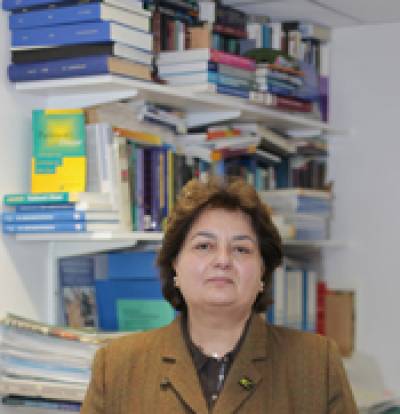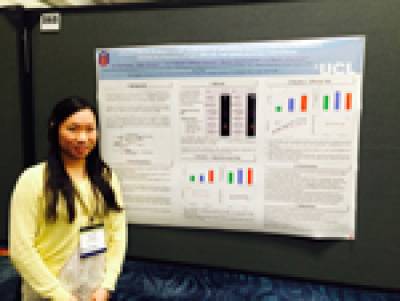Cognitive-Motor Neuroscience Group
Lab Head: Professor Marjan Jahanshahi

We are interested in the roles of the basal ganglia in motor control, cognition, emotion and motivation. We use a variety of approaches and techniques in our research, including clinical studies in patients with movement disorders including before and after deep brain stimulation and lesional surgery, functional imaging, recording of event-related and movement-related potentials and transcranial magnetic stimulation. This multi-technique approach is best illustrated by our work on self-initiated versus externally-triggered movements and our studies on random number generation.
Past and present funding:
Brain Research Trust, ESRC; European Commission; Medical Research Council; National Institute of Neurological Disorders and Stroke, NIH, USA; Parkinson's UK; Stroke Association, Wellcome Trust, Ambient Assisted Living.
National and international collaborators:
Professors David Brooks and Paola Piccini (Hammersmith Hospital & Imperial College), Dr David Lagnado (University College London), Dr Magda Osman (Queen Mary College, London University) Dr Aileen Ho (University of Reading), Dr Ellen Seiss (University of Surrey)
Professor Jose Obeso, Dr Maria Rodriguez-Oroz, Professor Maria Pastor (Spain), Dr Lazaro Alvarez, Dr Maria Gringas, Mr Enrique Casabona (CIREN, Havana, Cuba), Dr Georg Dirnberger and Professor Rory Paz (Weissman Institute, Israel)
Current Group Members
Prof. Marjan Jahanshahi
Volunteers/Collaborators
Catherine Cheung – UCL Honorary Research Assistant
Isobel Williams - Volunteer
PhD students:
Yu-Ting Huang
Friederike Leimbach
Dr James Gratwicke – secondary supervisor
Dr Vishal Rawji – secondary supervisor
Johann Philipsson – Umea, Sweden
MSc students:
Saryah Alhejazi
Artem Bunchuk
Suzette Shahmoon – visiting
Suzette Shahmoon

I have a special interest in understanding how people experience life after Deep Brain Stimulation surgery and in improving that experience by focusing on wellbeing and happiness, which seem to be the preserve of the healthy and rarely applied to those who are chronically ill. My research is based on approaches taken from positive psychology. It focuses on human strengths such as resilience. My aim is to develop an ‘intervention’ program designed to help people with chronic illness focus on their personal strengths and the positive elements of their lives.
Friederike Leimbach

My research focuses on cognitive effects of Deep Brain Stimulation (DBS) of the subthalamic nucleus (STN) and the pedunclopontine nucleus (PPN) for Parkinson's disease. Currently I am working on the effects of the STN-DBS on probabilistic decision making and verbal fluency which is the cognitive measure most consistently impaired following DBS surgery in PD. I am also investigating the effects of PPN DBS on cognition and response inhibition in the motor and cognitive domains.
Yu-Ting Huang

My research interest is in decision-making in humans, especially the role of dopamine in modulating the process. I am using Parkinson’s disease as a model of human dopamine deficiency and patients with PD and impulse control disorders as a model of aberrant dopaminergic transmission, and the assessment of patients on and off dopaminergic medication as a methodological approach. I am investigating the influence of dopamine depletion and dopaminergic medication on decision-making in Parkinson's disease.
Current Research Themes
· Willed action: preparation, initiation, inhibition
· Response selection under competition
· Modulation of movement speed by attention and motivation
· Psychosocial function and quality of life
 Close
Close

